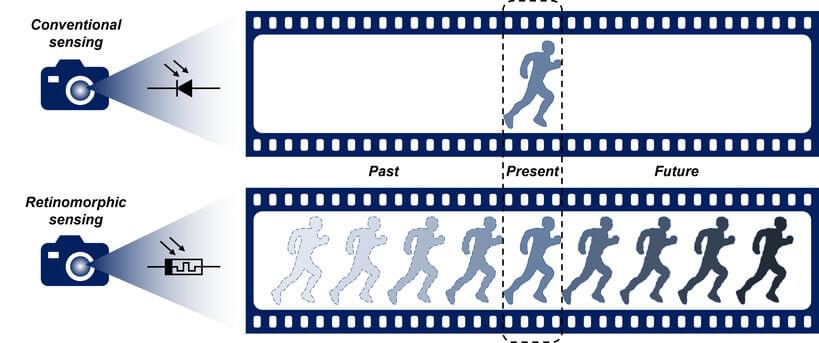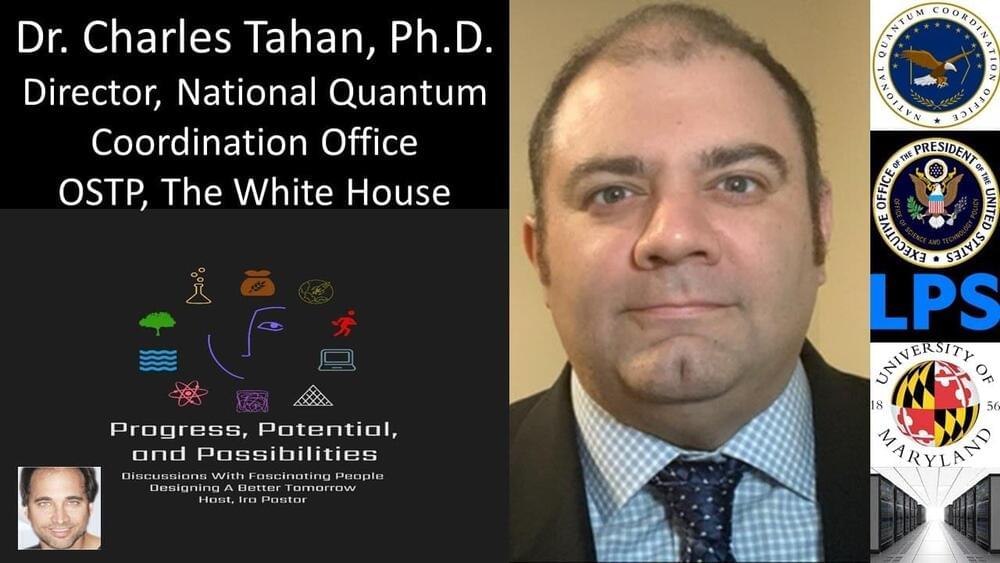
A new bio-inspired sensor can recognize moving objects in a single frame from a video and successfully predict where they will move to. This smart sensor, described in a Nature Communications paper, will be a valuable tool in a range of fields, including dynamic vision sensing, automatic inspection, industrial process control, robotic guidance, and autonomous driving technology.
Current motion detection systems need many components and complex algorithms doing frame-by-frame analyses, which makes them inefficient and energy-intensive. Inspired by the human visual system, researchers at Aalto University have developed a new neuromorphic vision technology that integrates sensing, memory, and processing in a single device that can detect motion and predict trajectories.
At the core of their technology is an array of photomemristors, electrical devices that produce electric current in response to light. The current doesn’t immediately stop when the light is switched off. Instead, it decays gradually, which means that photomemristors can effectively “remember” whether they’ve been exposed to light recently. As a result, a sensor made from an array of photomemristors doesn’t just record instantaneous information about a scene, like a camera does, but also includes a dynamic memory of the preceding instants.


















